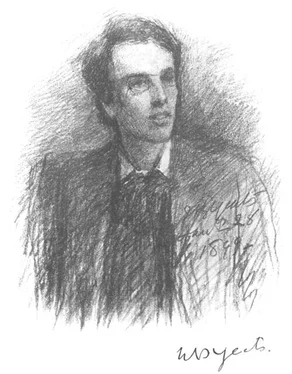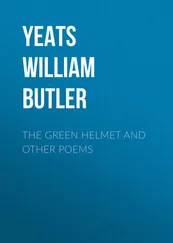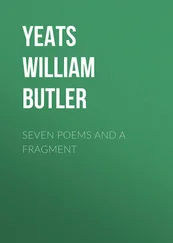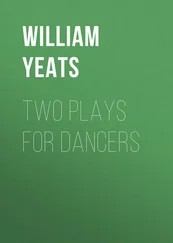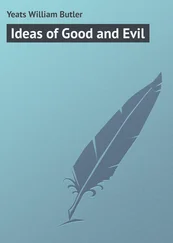William Yeats - Poems
Здесь есть возможность читать онлайн «William Yeats - Poems» весь текст электронной книги совершенно бесплатно (целиком полную версию без сокращений). В некоторых случаях можно слушать аудио, скачать через торрент в формате fb2 и присутствует краткое содержание. Год выпуска: 2012, Жанр: Поэзия, Драматургия, на английском языке. Описание произведения, (предисловие) а так же отзывы посетителей доступны на портале библиотеки ЛибКат.
- Название:Poems
- Автор:
- Жанр:
- Год:2012
- ISBN:нет данных
- Рейтинг книги:3 / 5. Голосов: 1
-
Избранное:Добавить в избранное
- Отзывы:
-
Ваша оценка:
- 60
- 1
- 2
- 3
- 4
- 5
Poems: краткое содержание, описание и аннотация
Предлагаем к чтению аннотацию, описание, краткое содержание или предисловие (зависит от того, что написал сам автор книги «Poems»). Если вы не нашли необходимую информацию о книге — напишите в комментариях, мы постараемся отыскать её.
Poems — читать онлайн бесплатно полную книгу (весь текст) целиком
Ниже представлен текст книги, разбитый по страницам. Система сохранения места последней прочитанной страницы, позволяет с удобством читать онлайн бесплатно книгу «Poems», без необходимости каждый раз заново искать на чём Вы остановились. Поставьте закладку, и сможете в любой момент перейти на страницу, на которой закончили чтение.
Интервал:
Закладка:
"I saw from a distant saddle; from the earth she made her moan;
"I would die like a small withered leaf in the autumn, for breast unto breast
"We shall mingle no more, nor our gazes empty their sweetness lone.
"In the isles of the farthest seas where only the spirits come.
"Were the winds less soft than the breath of a pigeon who sleeps on her nest,
"Nor lost in the star-fires and odours the sound of the sea's vague drum?
"O flaming lion of the world, O when will you turn to your rest?"
The wailing grew distant; I rode by the woods of the wrinkling bark,
Where ever is murmurous dropping, old silence and that one sound;
For no live creatures live there, no weasels move in the dark;
In a reverie forgetful of all things, over the bubbling ground.
And I rode by the plains of the sea's edge, where all is barren and gray,
Gray sands on the green of the grasses and over the dripping trees,
Dripping and doubling landward, as though they would hasten away,
Like an army of old men lounging for rest from the moan of the seas.
And the winds made the sands on the sea's edge turning and turning go,
As my mind made the names of the Fenians. Far from the hazel and oak,
I rode away on the surges, where, high as the saddle bow,
Fled foam underneath me, and round me, a wandering and milky smoke.
Long fled the foam-flakes around me, the winds fled out of the vast,
Snatching the bird in secret; nor knew I, embosomed apart,
When they froze the cloth on my body like armour riveted fast,
For Remembrance, lifting her leanness, keened in the gates of my heart.
Till fattening the winds of the morning, an odour of new-mown hay
Came, and my forehead fell low, and my tears like berries fell down;
Later a sound came, half lost in the sound of a shore far away,
From the great grass-barnacle calling, and later the shore-weeds brown.
If I were as I once was, the strong hoofs crushing the sand and the shells,
Coming out of the sea as the dawn comes, a chaunt of love on my lips,
Not coughing, my head on my knees, and praying, and wroth with the bells,
I would leave no saint's head on his body from Rachlin to Bera of ships.
Making way from the kindling surges, I rode on a bridle-path
Much wondering to see upon all hands, of wattles and woodwork made,
Your bell-mounted churches, and guardless the sacred cairn and the rath,
And a small and a feeble populace stooping with mattock and spade.
Or weeding or ploughing with faces a-shining with much-toil wet;
While in this place and that place, with bodies unglorious, their chieftains stood,
Awaiting in patience the straw-death, croziered one, caught in your net:
Went the laughter of scorn from my mouth like the roaring of wind in a wood.
And because I went by them so huge and so speedy with eyes so bright,
Came after the hard gaze of youth, or an old man lifted his head:
And I rode and I rode, and I cried out, "The Fenians hunt wolves in the night,
So sleep thee by daytime." A voice cried, "The Fenians a long time are dead."
A whitebeard stood hushed on the pathway, the flesh of his face as dried grass,
And in folds round his eyes and his mouth, he sad as a child without milk;
And the dreams of the islands were gone, and I knew how men sorrow and pass,
And their hound, and their horse, and their love, and their eyes that glimmer like silk.
And wrapping my face in my hair, I murmured, "In old age they ceased";
And my tears were larger than berries, and I murmured, "Where white clouds lie spread
"On Crevroe or broad Knockfefin, with many of old they feast
"On the floors of the gods." He cried, "No, the gods a long time are dead."
And lonely and longing for Niam, I shivered and turned me about,
The heart in me longing to leap like a grasshopper into her heart;
I turned and rode to the westward, and followed the sea's old shout
Till I saw where Maive lies sleeping till starlight and midnight part.
And there at the foot of the mountain, two carried a sack full of sand,
They bore it with staggering and sweating, but fell with their burden at length:
Leaning down from the gem-studded saddle, I flung it five yards with my hand,
With a sob for men waxing so weakly, a sob for the Fenian's old strength.
The rest you have heard of, O croziered one; how, when divided the girth,
I fell on the path, and the horse went away like a summer fly;
And my years three hundred fell on me, and I rose, and walked on the earth,
A creeping old man, full of sleep, with the spittle on his beard never dry.
How the men of the sand-sack showed me a church with its belfry in air;
Sorry place, where for swing of the war-axe in my dim eyes the crozier gleams;
What place have Caolte and Conan, and Bran, Sgeolan, Lomair?
Speak, you too are old with your memories, an old man surrounded with dreams.
S. PATRIC
Where the flesh of the footsole clingeth on the burning stones is their place;
Where the demons whip them with wires on the burning stones of wide hell,
Watching the blessed ones move far off, and the smile on God's face,
Between them a gateway of brass, and the howl of the angels who fell.
USHEEN
Put the staff in my hands; for I go to the Fenians, O cleric, to chaunt
The war-songs that roused them of old; they will rise, making clouds with their breath
Innumerable, singing, exultant; the clay underneath them shall pant,
And demons be broken in pieces, and trampled beneath them in death.
And demons afraid in their darkness; deep horror of eyes and of wings,
Afraid their ears on the earth laid, shall listen and rise up and weep;
Hearing the shaking of shields and the quiver of stretched bowstrings,
Hearing hell loud with a murmur, as shouting and mocking we sweep.
We will tear out the flaming stones, and batter the gateway of brass
And enter, and none sayeth "No" when there enters the strongly armed guest;
Make clean as a broom cleans, and march on as oxen move over young grass;
Then feast, making converse of wars, and of old wounds, and turn to our rest.
S. PATRIC
On the flaming stones, without refuge, the limbs of the Fenians are tost;
None war on the masters of Hell, who could break up the world in their rage;
But kneel and wear out the flags and pray for your soul that is lost
Through the demon love of its youth and its godless and passionate age.
USHEEN
Ah, me! to be shaken with coughing and broken with old age and pain,
Without laughter, a show unto children, alone with remembrance and fear;
All emptied of purple hours as a beggar's cloak in the rain,
As a hay-cock out on the flood, or a wolf sucked under a weir.
It were sad to gaze on the blessed and no man I loved of old there;
I throw down the chain of small stones! when life in my body has ceased,
I will go to Caolte, and Conan, and Bran, Sgeolan, Lomair,
And dwell in the house of the Fenians, be they in flames or at feast.
GLOSSARY AND NOTES
The Pronunciation of the Irish Words. —When I wrote the greater number of these poems I had hardly considered the question seriously. I copied at times somebody's perhaps fanciful phonetic spelling, and at times the ancient spelling as I found it in some literal translation, pronouncing the words always as they were spelt. I do not suppose I would have defended this system at any time, but I do not yet know what system to adopt. The modern pronunciation, which is usually followed by those who spell the words phonetically, is certainly unlike the pronunciation of the time when classical Irish literature was written, and, so far as I know, no Irish scholar who writes in English or French has made that minute examination of the way the names come into the rhythms and measures of the old poems which can alone discover the old pronunciation. A French Celtic scholar gave me the pronunciation of a few names, and told me that Mr. Whitley Stokes had written something about the subject in German, but I am ignorant of German. If I ever learn the old pronunciation, I will revise all these poems, but at present I can only affirm that I have not treated my Irish names as badly as the mediæval writers of the stories of King Arthur treated their Welsh names.
Читать дальшеИнтервал:
Закладка:
Похожие книги на «Poems»
Представляем Вашему вниманию похожие книги на «Poems» списком для выбора. Мы отобрали схожую по названию и смыслу литературу в надежде предоставить читателям больше вариантов отыскать новые, интересные, ещё непрочитанные произведения.
Обсуждение, отзывы о книге «Poems» и просто собственные мнения читателей. Оставьте ваши комментарии, напишите, что Вы думаете о произведении, его смысле или главных героях. Укажите что конкретно понравилось, а что нет, и почему Вы так считаете.
